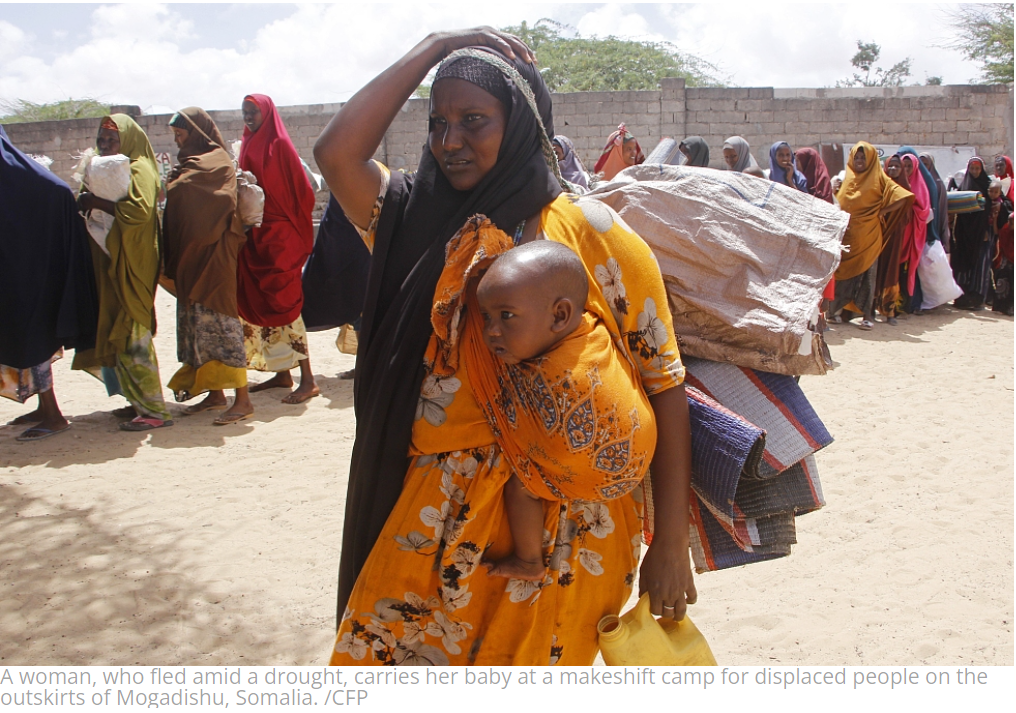As the interconnectedness of health and climate change claims pride of place in global discourse, an assertion that is frequently repeated is that the global challenges of the next decade – climate change, disease outbreaks, food insecurity, poverty and conflict – will affect African countries disproportionately and impact the lives of its people in unimaginable ways.
For many Africans however, these issues are no longer future challenges; they are a harsh reality whose impacts include changing weather patterns that are fueling disease outbreaks, threatening livelihoods, creating food and water scarcity, and bringing with them heightened conflict as communities fight for depleting resources.
At the heart of all these impacts is climate change, which will continue to threaten the health, social and economic wellbeing of the global population if immediate action is not taken to arrest the rapid overheating of the planet. This action is especially urgent for low- and middle-income countries across the continent, which are more vulnerable to climate-related shocks despite contributing only 2-3 percent of global greenhouse emissions.
For African countries to navigate this reality and pick up the pace needed to achieve the Sustainable Development Goals (SDGs) and other regional commmitments, we must not only participate in global health and climate conversations, we must also develop and deploy sustainable climate and health strategies built on a foundation of equity, inclusivity, solidarity, and trust.
These four pillars are crucial in an increasingly divided world, where the crisis of trust between the global north and south threatens to derail efforts to make meaningful progress toward the global goals. Furthermore the paucity of data on the differential impact of climate change on women and men, girls and boys, limits evidence-based decision making and appropriate mitigation and resource allocation measures.
The clock is ticking. Addressing the climate crisis is a global health, economic, gender equity and human rights imperative – and it must be treated as such. With little progress made on climate commitments and the achievement of the SDGs woefully off-track, now is the time for bold, decisive action led by visionary leadership that is also diverse, equitable and inclusive.
For far too long the face of leadership has been overwhelmingly male. The result of this has been inequitable solutions developed from the dissection of challenges viewed through a male lens – solutions that have barely scratched the surface of the multiplicity of challenges that need to be addressed. If we are to hit our climate targets, we must be willing to challenge the status quo and rethink global leadership.
Women account for just 15 percent of the world’s environment ministers and occupy about 25 percent of senior leadership positions in global health, despite making up 70 percent of the health workforce. Much more needs to be done to improve the representation of women leadership in both sectors, as the gendered impacts of climate change and health crises cannot be addressed without an overhaul of global and regional leadership.
Now is the time for women to rise up and take their places at the decision-making tables; to claim space within the global climate and health discussions and ensure that their voices are heard. This is also the time for male allies to use their influence to create more room for women to lead.
By making space for women to participate in decision-making, design, and implementation of climate strategies from the highest levels of leadership to the grassroots, we can all benefit from the wealth of knowledge and expertise that offer a valuable resource to address the poly-crisis we find ourselves in. This is especially critical on a continent where women’s leadership is seen as the exception rather than the norm, and where lack of representation in leadership continues to undermine the rights and futures of women, girls, and entire communities.
Empowering more women to lead will result in more gender-responsive solutions to the intertwined climate and health challenges that limit our ability to flourish. Bold, female leadership can enable more women to adapt to climate change by addressing issues including discriminatory laws, access to and control of land and marine resources; exclusion from financing for climate adaptation; dependence on agriculture and the informal economy for employment; poor access to clean water, sanitation, hygiene and energy infrastructure, limited access to and use of new technologies, and high exposure to sexual and gender-based violence, among others.
Current estimates indicate that at the current rate, it will take 130 years to achieve gender equality in the highest positions of power. However we do not have the luxury of time to spend over a century debating the issue of equitable leadership for a healthier planet and people.
As climate talks dominate global discourse and politicians, technical experts and civil society gather at global convenings such as the World Health Summit and COP28, we have an opportunity to center the voices of women in these discussions and to demand action for gender (and racial) equity in leadership to address climate change.
American industrialist Henry Ford once said: “If you do what you’ve always done, you’ll always get what you’ve always got.” By refusing to address the glaring gaps created by lack of equitable, diverse leadership in health and climate action, we are somehow hoping to achieve a different result by doing the same things repeatedly.
We are fast running out of time to make things right. We must act now, and we must do things differently to achieve our desired outcomes.
By reimagining the face of leadership in health and climate to close the glaring gender gaps at all levels of decision-making, we can steer our world towards resilience and shared prosperity for the benefit of current and future generations.
This article was edited and structured for publication at africa.cgtn.com.


